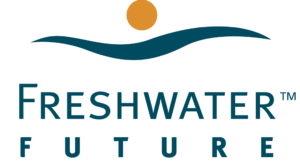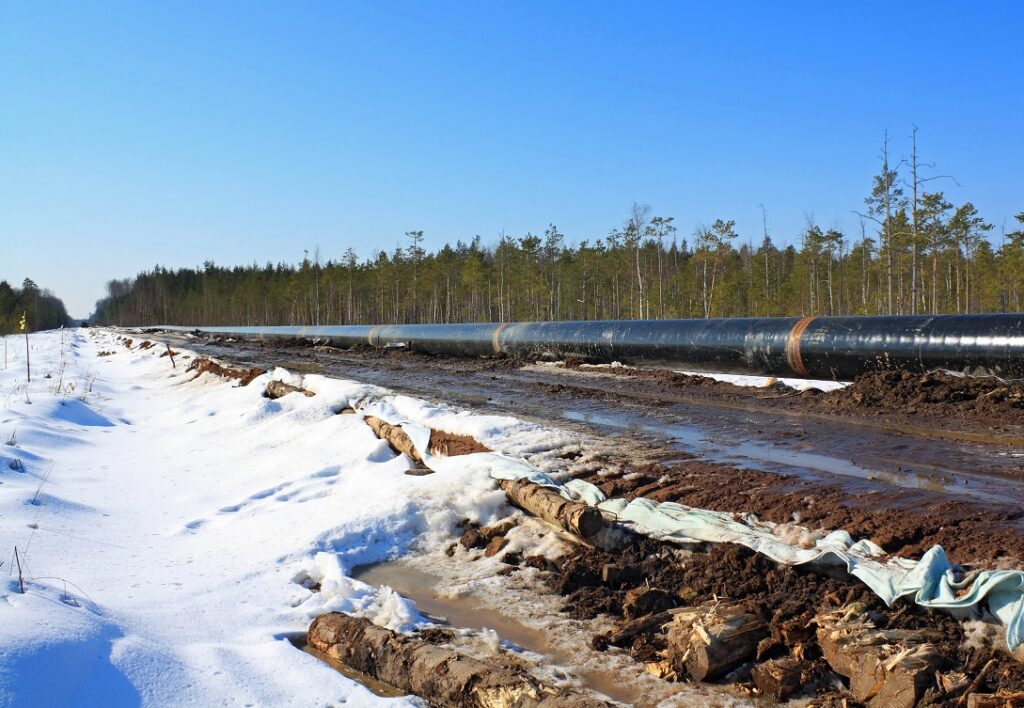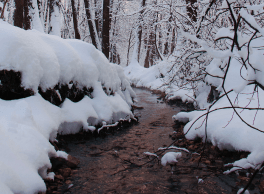Summary: Senator Manchin’s Energy Permitting Reform Act of 2024 [S4753] is being pushed as a climate bill, but in reality, is a boon to the fossil fuel industry. These egregious concessions do more than just lock us on a path towards further climate catastrophe, they also threaten our Great Lakes and all communities that rely on them. See below for Freshwater Future’s top concerns and talking points you can use to talk to your Great Lakes representatives – pick one or two that resonate most with your area.
Introduction: “Hello Senator [Look up your senator here!], I am a constituent from [your town] and I am calling to urge you to vote no on the Energy Permitting Reform Act of 2024 [S4753]. I believe that this bill will harm public health, exacerbate the climate crisis, and threaten the Great Lakes and our freshwater resources for the following reasons:”
Click on the topic that concerns you the most for specific background information and talking points:
- Mining Waste on Federal Lands + Acid Mine Drainage
- Community Input + Transparency
- Oil and Gas Pipelines Including Line 5
- Fossil Fuel Projects on Public Lands in the Great Lakes
Mining Waste on Federal Lands + Acid Mine Drainage
Summary: The bill would allow mining companies to claim as many mill sites as “reasonably necessary” for their operations. This could result in companies claiming hundreds, if not thousands, of acres of land for toxic waste, tailings, and other mining operations, increasing environmental hazards in surrounding communities. This is a particular concern for the Great Lakes due to historic and current sulfide mining pressures on the Lake Superior and Lake Michigan watersheds.
Mining for heavy metals such as nickel and copper that can be found surrounding Lake Superior come from sulfide ores. These mining operations produce massive amounts of waste rock containing sulfides and generate sulfuric acid when they are exposed to air and moisture. This process results in Acid Mine Drainage (AMD), where this sulfuric acid leaches into and pollutes freshwater resources. AMD from mining projects have been the cause of massive water quality issues and every mine in this type of rock has been a source of pollution. This bill looks to store dangerous waste rock on federal lands, which hold some of the region’s most treasured ecosystems and critical biodiversity that would certainly be harmed by AMD.
Talking Point: “This bill promotes mining projects on federal lands and allows private companies to claim thousands of acres of public lands for the storage of toxic mining waste. This increases the risk of acid mine drainage into our Great Lakes and the leaching of sulfuric acid, which can destroy biodiversity and poison some of the most important freshwater resources in the United States.”
Community Input + Transparency
Summary: This bill severely reduces judicial review for projects, shortening the timeline from six years to just 150 days. This drastic change would undermine the examination necessary to protect our public health and natural resources. This bill also contains provisions limiting review and public input under NEPA (National Environmental Policy Act). In the case that a court remands an authorization decision back to the agency that is deemed responsible (ex. the decision is vacated and requires further action by the agency itself), ERPA designates that the agency must act within 180 days. This would mean that the agency would have to review the court’s decision and complete technical plans within a 180-day limit.
Talking Point: “The bill reduces the time for environmental reviews under the National Environmental Policy Act. By reducing the review period from six years to just 150 days and forcing agencies to act on court remands within 180 days, inadequate evaluations of harmful energy projects, mainly oil and gas drilling, can lead to project approvals without fully considering their impacts on water quality, ecosystems, or the health of the environment. Historically, this process has also been critical for allowing the communities most impacted by these projects to provide input and address their concerns.”
What Does This Mean for Line 5?
Summary: The Line 5 pipeline and proposed tunnel project could be directly impacted by the Energy Permitting Reform Act of 2024. Line 5, which runs under the Straits of Mackinac, has historically been opposed due to the potential risk of a catastrophic oil spill in the Great Lakes. The Canadian company, Enbridge, the operator of the pipeline, has proposed a tunnel through the Straits of Mackinac as a solution to the problem, but this mere temporary safeguard does not adequately protect the water of the Great Lakes.
ERPA applies to a wide range of energy projects, including the construction, development, production, storage, and transportation of energy, including oil. This means that oil pipelines, such as Line 5, as well as any other energy transportation across the country, fall under the purview of ERPA. The permitting reform bill contains significant limitations to judicial review and accelerates the permitting process, which could significantly reduce the ability of the public, community groups, and state authorities to challenge Line 5’s reroutes and operation.
Talking Point: “The 71-year old pipeline known as Line 5 threatens the Great Lakes with a catastrophic oil spill every day that it continues to operate past its intended lifespan of 50 years. Tribes, Great Lakes residents, a coalition of environmental organizations, and state officials have all called for this dangerous infrastructure to be shut down. The proposed tunnel project is simply a band-aid solution to an enormous threat to one of the greatest freshwater resources in the world. If the Energy Permitting Reform Act of 2024 were to be enacted, public voices and health considerations would be buried under private interest as the judicial review process is cut at its knees. While multinational fossil fuel corporations have incredible resources to beat down public challenges against their projects, sometimes all advocates have on their side is time to organize their rebuttals. To remove or drastically shorten judicial review protections is to remove a critical process in the fight for our freshwater and a key democratic process.”
Fossil Fuel Projects on Public Lands in the Great Lakes
A wide range of fossil fuel projects, including unconventional drilling techniques like fracking, pose significant risks to water resources and public lands in the Great Lakes region. States such as Pennsylvania, Ohio, and New York face specific concerns due to their regulatory frameworks for fracking. While New York has implemented a ban on fracking, corporations have found loopholes by employing smaller-scale or unconventional drilling methods such as horizontal drilling and low-volume hydraulic fracturing. Ohio and Pennsylvania still remain as major hubs for hydraulic fracking, and shared water resources such as the Great Lakes Basin leads us to have great concerns over the continued permitting of these projects.
The use of brine pits in these regions is prevalent and the regulations governing toxic brine management, wastewater disposal, and methane emissions are often not adequate in their protection of our water resources. Additionally, injection wells, which are used for the disposal of fracking wastewater, have led to environmental risk, while orphaned wells that are abandoned by companies and left uncapped have leaked dangerous chemicals and methane into water resources. Expanding fossil fuel projects under ERPA and fast-tracking energy development through accelerated judicial review and project approvals undermines commitments to climate change mitigation.
Talking Point: “The bill fast-tracks fossil fuel projects on public lands, including those near the Great Lakes where risks to water quality and ecosystem biodiversity are high. While I understand that there is a need for clean energy development and faster permitting to fully implement the Inflation Reduction Act, this bill prioritizes oil and gas projects and puts one of the world’s largest freshwater sources at risk.”
Image: Map of USDA Forest Service Lands in the Great Lakes Basin
Sign-off: “There are no amendments that can redeem this bill, it must be struck down. This bill places our lands, waters, and public health at great risk during an increasingly dangerous climate crisis. When the time comes – please vote with our current and future generations in mind – vote no on the Energy Permitting Reform Act of 2024.”








